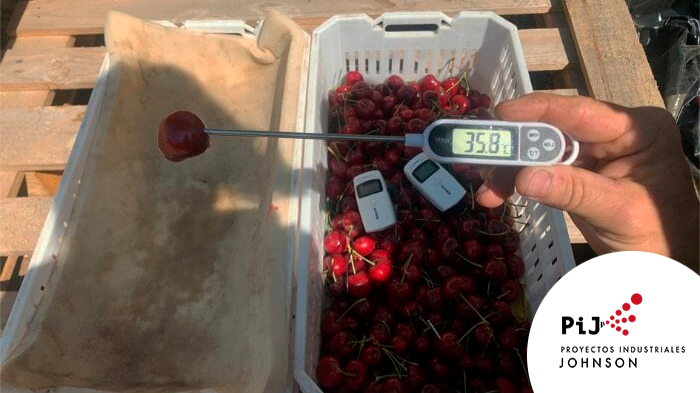To prevent spoilage and preserve the quality of cherries, strict storage conditions must be implemented, independently or in combination with other post-harvest techniques. Indeed, fungal proliferation in post-harvest is a significant obstacle for the fruit industry.
Currently, fludioxonil (Scholar®, Syngenta) is authorised for use to prevent fungal spoilage during storage and transport of stone fruit. However, a growing body of evidence is questioning its classification as 'reduced risk' and the scientific community is calling for its re-evaluation.
Consequently, reducing the use of synthetically derived fungicides to control post-harvest decay is one of the issues to which attention has been increasingly turning in the last decade. A promising approach to prolong fruit quality has been identified in the study of safe alternatives such as the use of biocontrol agents and modified atmosphere packaging (MAP).
The objective of the study conducted by the researchers in Badajoz (Spain) was therefore to evaluate the impact of the simultaneous application of MAP and two antagonistic yeasts, Pichia kudriavzevii PK18 and Metschnikowia pulcherrima L672, on the shelf life of early “Burlat” cherries, and to see if this alternative could extend shelf-life compared to the current post-harvest treatment with fludioxonil combined with MAP
In this study, the fruit quality, microbiological and physico-chemical analyses of the batches treated with yeast antagonists were compared to those of a control batch without yeast application and a batch treated with fludioxonil (Scholar®). The main effect of MAP is to limit fruit weight loss.
In fact, the maximum drop observed during the trial was 3%. The physico-chemical characteristics of the fruit and the composition of the modified atmosphere showed comparable values between the various batches throughout the storage period at low temperatures. Interestingly, similar results to those obtained when using fludioxonil were observed when MAP was combined with the antagonistic yeasts P. kudriavzevii PK18 and M. pulcherrima L672.
The use of these yeasts induced changes in the quality parameters of the fruit, but not in negative terms: an increase in the solids content was observed. In the MAP-treated batches, a marginal reduction in volatile compounds related to fresh fruit aroma was observed, while an increase in altered fruit aromas was observed in the control batch
A consistent result with regard to spoilage control was observed throughout the shelf-life. For forty days, the quality of 'Burlat' cherries stored in MAP (-1.5 kPa O2,-9 kPa CO2) at 2°C was adequately maintained
The same spoilage control effect was observed during storage at 25°C for two days; therefore, under conditions of elevated temperature and aerobic atmosphere, the control effect exerted by yeasts on spoilage moulds is long-lasting. Combining different techniques therefore seems promising for improved and prolonged fruit storage.
Source: Cabañas, C.M., Hernández, A., Serradilla, M.J., Moraga, C., Martín, A., Córdoba, M.d.G. and Ruiz-Moyano, S. (2023), Improvement of shelf-life of cherry (Prunus avium L.) by combined application of modified-atmosphere packaging and antagonistic yeast for long-distance export. J Sci Food Agric, 103: 4592-4602. https://doi.org/10.1002/jsfa.12532.
Image: Peakfresh
Melissa Venturi
University of Bologna (IT)
Cherry Times - All rights reserved










